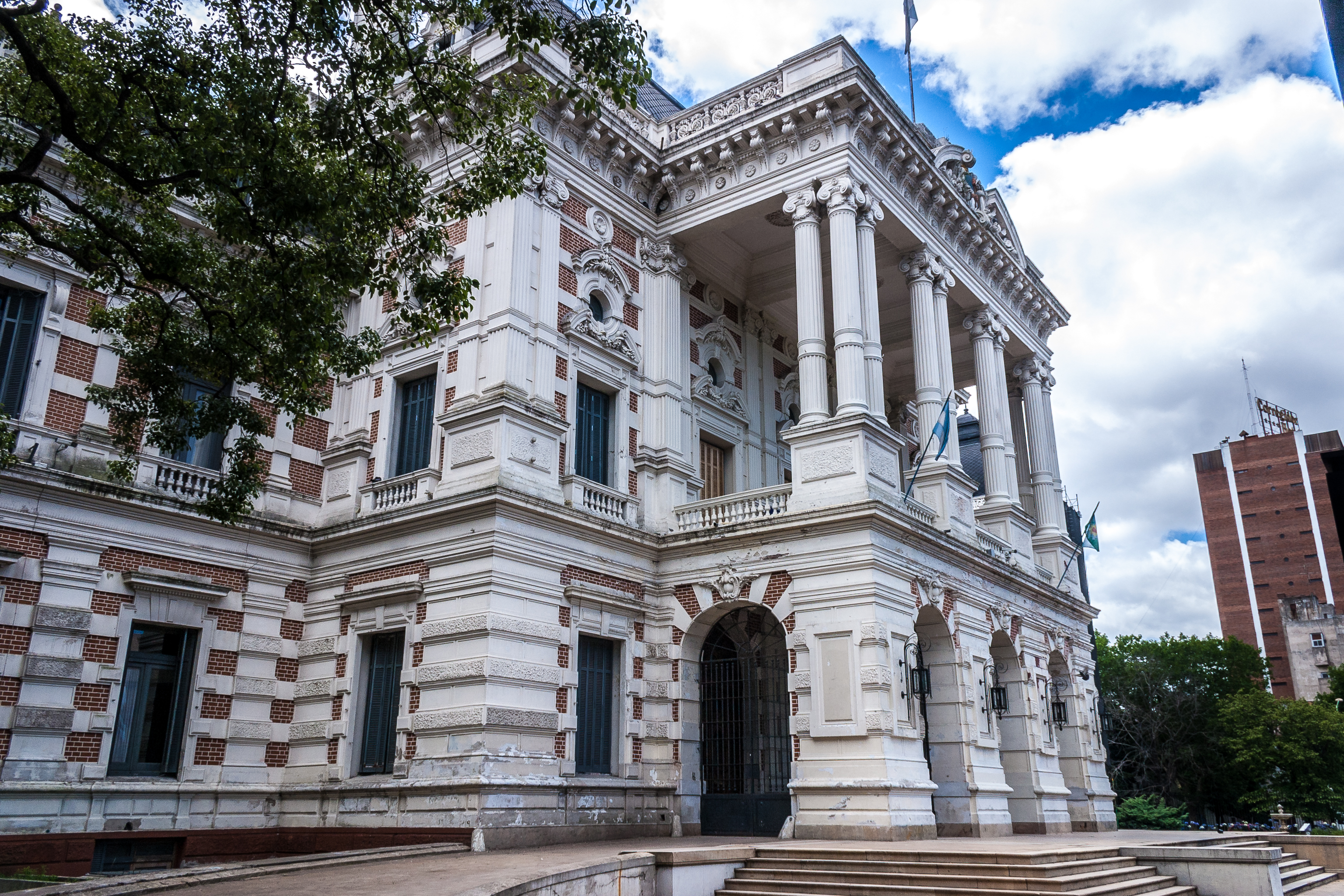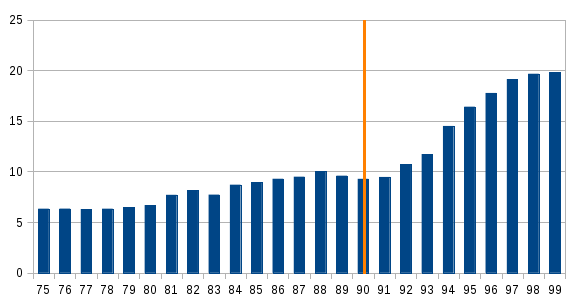|
Alberto Balestrini
Alberto Edgardo Balestrini (9 March 1947 – 4 April 2017) was an Argentine lawyer and politician of the Justicialist Party. Balestrini held a number of important posts throughout his career: he served as Vice Governor of Buenos Aires Province under Daniel Scioli from 2007 to 2010, as List of presidents of the Argentine Chamber of Deputies, President of the Argentine Chamber of Deputies from 2005 to 2007, and as ''intendente'' (mayor) of La Matanza Partido, La Matanza from 1999 to 2005. In addition, Balestrini served as a member of the Buenos Aires Buenos Aires Province Senate, provincial senate, and as president of the Buenos Aires Province chapter of the Justicialist Party. Balestrini's career was cut short by a debilitating stroke in April 2010, following which he retired from politics in order to recover. He died in 2017, aged 70. Early life and education Alberto Balestrini was born on 9 March 1947 in Buenos Aires. His father was a Peronist military officer who was forced in ... [...More Info...] [...Related Items...] OR: [Wikipedia] [Google] [Baidu] [Amazon] |
Governor Of Buenos Aires Province
The Governor of Buenos Aires Province () is a citizen of the Buenos Aires Province of Argentina, holding the office of governor for the corresponding period. The governor is elected alongside a vice-governor. Currently the governor of Buenos Aires Province is Axel Kicillof since December 11, 2019. Requirements To be able to be elected governor, the person must be an Argentine citizen and must have been born in Argentina, or be the child of an Argentine citizen if born in a foreign country.Constitución de la Provincia de Buenos Aires - Art- 121 The citizen must also be at least 30 years old, and have at least 5 uninterrupted years of residence in the province if not natural from it. The term lasts 4 years, with the chance of a single reelection. List of o ...
|
Lawyer
A lawyer is a person who is qualified to offer advice about the law, draft legal documents, or represent individuals in legal matters. The exact nature of a lawyer's work varies depending on the legal jurisdiction and the legal system, as well as the lawyer's area of practice. In many jurisdictions, the legal profession is divided into various branches — including barristers, solicitors, conveyancers, notaries, canon lawyer — who perform different tasks related to the law. Historically, the role of lawyers can be traced back to ancient civilizations such as Greece and Rome. In modern times, the practice of law includes activities such as representing clients in criminal or civil court, advising on business transactions, protecting intellectual property, and ensuring compliance with laws and regulations. Depending on the country, the education required to become a lawyer can range from completing an undergraduate law degree to undergoing postgraduate education and ... [...More Info...] [...Related Items...] OR: [Wikipedia] [Google] [Baidu] [Amazon] |
1999 Argentine General Election
Argentina held presidential elections on 24 October 1999. Legislative elections were held on four dates, 8 August, 12 September, 26 September and 24 October, though most polls took place on 24 October. Background The Convertibility Plan, which had helped bring about stable prices and economic recovery and modernization, had endured the 1995 Mexican peso crisis, the 1997 Asian financial crisis, and other global shocks; but not without strain. Argentine business confidence struggled following these events and unemployment, already higher as a result of a wave of imports and sharp gains in productivity after 1990, had hovered around 15% since 1995. Economic problems also led to a sudden increase in crime, particularly property crime, and President Carlos Menem's unpopularity had left his Justicialist Party (whose populist Peronist platform he had largely abandoned) weakened. Having himself experienced the burdens of an economy in crisis, former president and centrist Radical Civic ... [...More Info...] [...Related Items...] OR: [Wikipedia] [Google] [Baidu] [Amazon] |
Carlos Menem
Carlos Saúl Menem (2 July 1930 – 14 February 2021) served as the 50th president of Argentina for ten years, from 1989 to 1999. He identified as Peronism, Peronist, serving as President of the Justicialist Party for 13 years (from 1990 to 2001 and again from 2001 to 2003), and his political approach became known as Menemism. Born in Anillaco, La Rioja Province, Argentina, La Rioja, to a Syrian Argentines, Syrian family, Menem was raised as a Muslim,"Carlos Menem" ''Encyclopædia Britannica'' but later converted to Catholic Church, Roman Catholicism to pursue a political career. Menem became a Peronist during a visit to Buenos Aires. He was elected governor of La Rioja in 1973, deposed and detained following the 1976 Argentine coup d'état, and re-elected in 1983. He defeated the Buenos Aires governor Antonio Cafiero in ... [...More Info...] [...Related Items...] OR: [Wikipedia] [Google] [Baidu] [Amazon] |
Alberto Pierri
Alberto Reinaldo Pierri (born 1948) is an Argentine businessman and former politician of the Justicialist Party. Pierri is the owner and managing director of Telecentro, one of Argentina's largest communications company. He served as a member of the National Chamber of Deputies elected in Buenos Aires Province during 16 years, and presided the Chamber from 1989 to 1999 – being the longest-serving president of the Chamber of Deputies since the restoration of Argentine democracy in 1983. His tenure as president of the Chamber of Deputies was marred by a number of controversies, such as the infamous "diputrucho" incident, where a man who was not an elected member of Congress voted in place of an absent deputy. He was the sponsor of the bill that mandated the creation of the National University of La Matanza in 1989. In 2003, he unsuccessfully ran for Governor of Buenos Aires Province as part of the Front for Loyalty, the electoral coalition backing Carlos Menem Carlos Saúl ... [...More Info...] [...Related Items...] OR: [Wikipedia] [Google] [Baidu] [Amazon] |
Carlos Mugica
Carlos Mugica (October 7, 1930 – May 11, 1974) was an Argentine Roman Catholic priest and activist. Life and times Early life Carlos Francisco Sergio Mugica was born in Buenos Aires, in 1930, into a privileged background. His father, Adolfo Mugica, had been one of the founders of the National Democratic Party (opponents of suffrage activist and populist President Hipólito Yrigoyen), and his mother was Carmen Echagüe – herself born to one of Argentina's premier landowners. Mugica was the only one of seven siblings to have completed both his primary and secondary education in secular schools, and he graduated from the prestigious public college preparatory school, the Colegio Nacional de Buenos Aires. Mugica enrolled at the University of Buenos Aires in 1949 and was accepted into its law school; but in 1952, following a year in Europe, he resolved to enter the priesthood. He entered the Villa Devoto Seminary and in 1954 was assigned to the Parish of Saint Rose of Lima ... [...More Info...] [...Related Items...] OR: [Wikipedia] [Google] [Baidu] [Amazon] |
National Reorganization Process
The National Reorganization Process ( PRN; often simply , "the Process") was the military dictatorship that ruled Argentina from 1976 to 1983. In Argentina it is often known simply as the ("last military junta"), ("last military dictatorship") or ("last civil–military dictatorship"), because there have been several in the country's history and no others since it ended. The Argentine Armed Forces seized political power during the March 1976 coup against the presidency of Isabel Perón, the successor and widow of former President Juan Perón, at a time of growing economic and political instability. Congress was suspended, political parties were banned, civil rights were limited, and free market and deregulation policies were introduced. The President of Argentina and his ministers were appointed from military personnel while Peronists and leftists were persecuted. The junta launched the Dirty War, a campaign of state terrorism against opponents involving torture, extrajudi ... [...More Info...] [...Related Items...] OR: [Wikipedia] [Google] [Baidu] [Amazon] |
Ciudadela, Buenos Aires
Ciudadela is a city in Greater Buenos Aires, Buenos Aires Province, Argentina. It is located in the Tres de Febrero Partido, immediately to the west of the neighborhood of Liniers in Buenos Aires city proper. It is separated from the city by General Paz avenue. History Home to a cattle ranch in colonial times (''Rancho de Castro''), the area was the site of a base of operations for Viceroy Santiago de Liniers during the British invasions of the Río de la Plata of 1806. The first settlement was named ''Villa Liniers'' in his honor, and was the site of a major military camp after 1902. The town began to take shape with the arrival of the Ferrocarril Oeste railway in 1910, and was officially established that year. Ciudadela gradually grew around the railway station, and eventually merged into the Greater Buenos Aires urban agglomeration. Fuerte Apache, whose official name is "Barrio Ejército de los Andes" (), is a public housing development in Ciudadela. The subject of ongoing c ... [...More Info...] [...Related Items...] OR: [Wikipedia] [Google] [Baidu] [Amazon] |
Chile
Chile, officially the Republic of Chile, is a country in western South America. It is the southernmost country in the world and the closest to Antarctica, stretching along a narrow strip of land between the Andes, Andes Mountains and the Pacific Ocean. Chile had a population of 17.5 million as of the latest census in 2017 and has a territorial area of , sharing borders with Peru to the north, Bolivia to the northeast, Argentina to the east, and the Drake Passage to the south. The country also controls several Pacific islands, including Juan Fernández Islands, Juan Fernández, Isla Salas y Gómez, Desventuradas Islands, Desventuradas, and Easter Island, and claims about of Antarctica as the Chilean Antarctic Territory. The capital and largest city of Chile is Santiago, and the national language is Spanish language, Spanish. Conquest of Chile, Spain conquered and colonized the region in the mid-16th century, replacing Incas in Central Chile, Inca rule; however, they Arauco War ... [...More Info...] [...Related Items...] OR: [Wikipedia] [Google] [Baidu] [Amazon] |
Revolución Libertadora
The ''Revolución Libertadora'' (; ''Liberating Revolution'') as it named itself, was the civic-military dictatorship that ruled the Argentine Republic after overthrowing President Juan Domingo Perón, shutting down the National Congress of Argentina, National Congress, removing members of the Supreme Court, as well as provincial, municipal, and university authorities, and placing the entire Judiciary under commission. This occurred through a coup d'état on 16 September 1955. After two years the dictatorship organized conditional elections, which transferred power on 1 May 1958 to a constitutional government led by the Radical Arturo Frondizi, who in turn would also be overthrown by another military-led coup d'état in 1962. Background President Perón was first elected in 1946. In 1949, Argentine Constitution of 1949, a constitutional amendment sponsored by Peronism introduced a number of labour reforms along with unrestricted presidential reelections. The Legitimacy (poli ... [...More Info...] [...Related Items...] OR: [Wikipedia] [Google] [Baidu] [Amazon] |
Peronist
Peronism, also known as justicialism, is an Argentine ideology and movement based on the ideas, doctrine and legacy of Juan Perón (1895–1974). It has been an influential movement in 20th- and 21st-century Argentine politics. Since 1946, Peronists have won 10 out of the 14 presidential elections in which they have been allowed to run. Peronism is defined through its three flags: "economic independence" (an economy that does not depend on other countries, by developing its national industry), "social justice" (the fight against socioeconomic inequalities) and " political sovereignty" (the non-interference of foreign powers in domestic affairs). Peronism as an ideology is described as a social form of nationalism, as it pushes for a sense of national pride among Argentines. However, it promotes an inclusive form of nationalism that embraces all ethnicities and races as integral parts of the nation, distinguishing it from racial or chauvinistic ethno-nationalism that priori ... [...More Info...] [...Related Items...] OR: [Wikipedia] [Google] [Baidu] [Amazon] |



